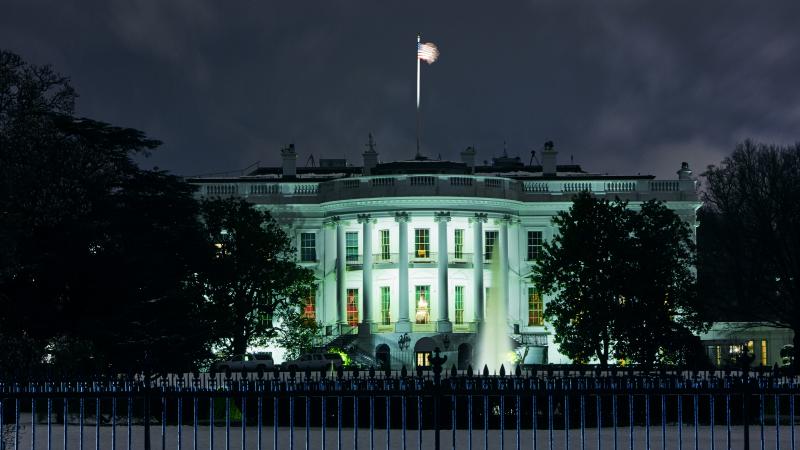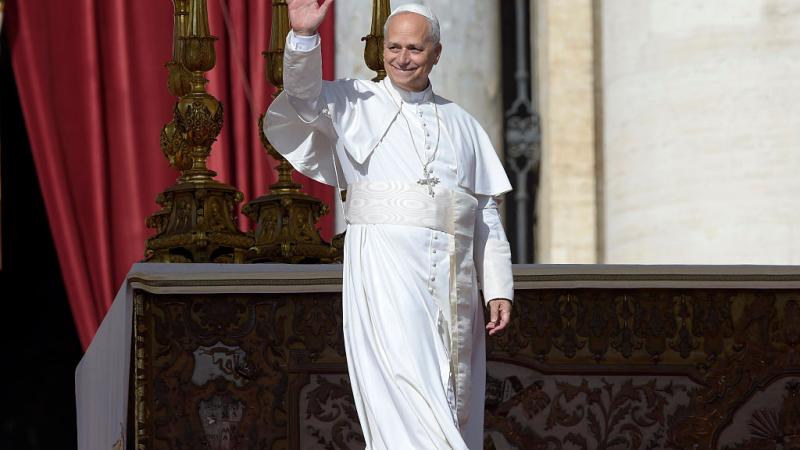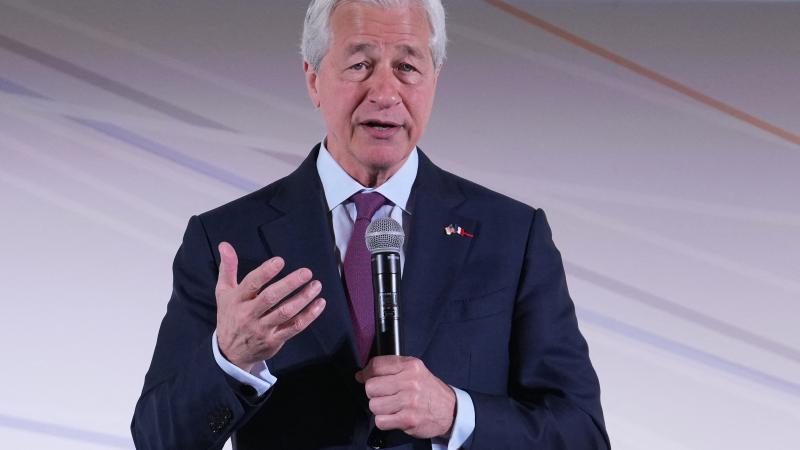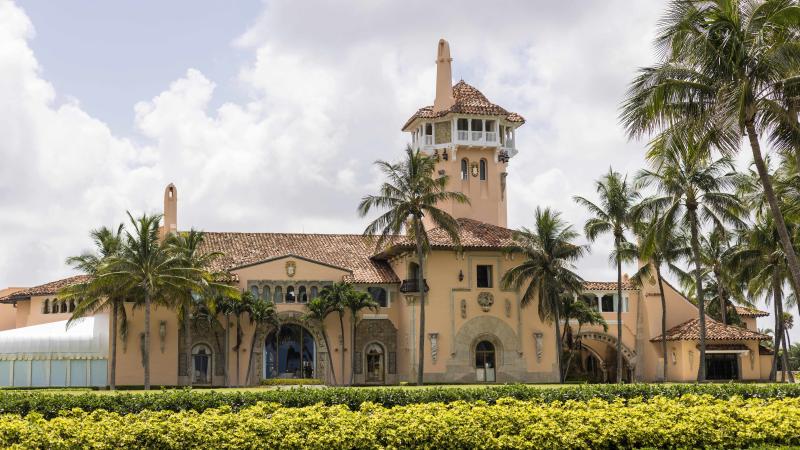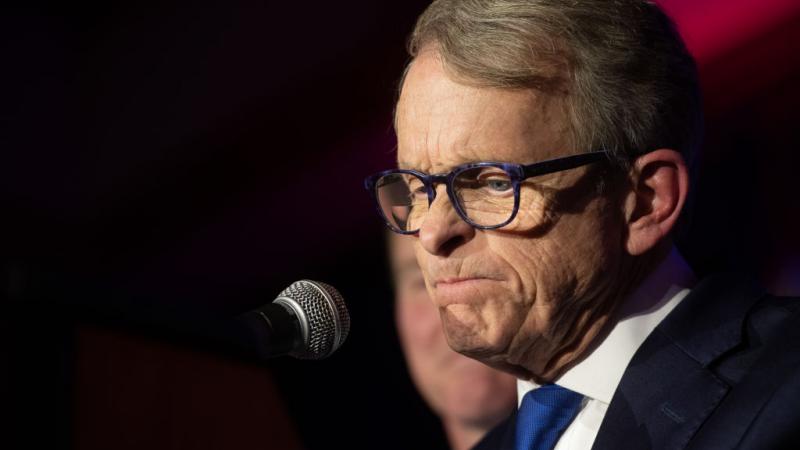Football greats, country music star urge SCOTUS to protect prayer at games on public property
Legal heavy hitters urge Supreme Court to junk precedent that holds "misperceptions of observers looking to take offense can trump the rights of religious people and schools to fully participate in public life."
Heisman Trophy winner and two-time college football champion Tim Tebow became famous for both his dominance on the field and kneeling in prayer after big plays, or "Tebowing," a term he trademarked in 2012.
Ten years later, the Supreme Court blessed the practice in the context of high school sports, ruling that Washington's Bremerton School District could not fire football coach Joe Kennedy for kneeling on the field after games, even if players joined him, under a "government endorsement" theory that imputed his expression to the district's own.
The two celebrities are now fighting for the right of teams from religious schools to lead amplified prayers at state-organized games, joined by three-time Dallas Cowboys Super Bowl champion Chad Hennings and country music star Josh Turner.
So are three former U.S. attorneys general, 18 state attorneys general led by Florida's James Uthmeier and 16 members of Congress led by Sen. Mike Lee, R-Utah.
They flooded SCOTUS with friend-of-the-court briefs last week in support of Cambridge Christian School, which challenged the Florida High School Athletic Association for banning a "brief, pregame prayer" over the loudspeaker with its opponent University Christian School at the 2015 state championship at the stadium then known as the Citrus Bowl.
CCS's lawyers at First Liberty Institute emphasized the briefs are authored by some of the most prominent law firms and lawyers in the country.
One is by former U.S. Solicitor General Paul Clement, who has argued more than 60 times before SCOTUS in private practice and is representing the former AGs Michael Mukasey, Jeff Sessions and Bill Barr, who served under Presidents George W. Bush and Donald Trump.
Image
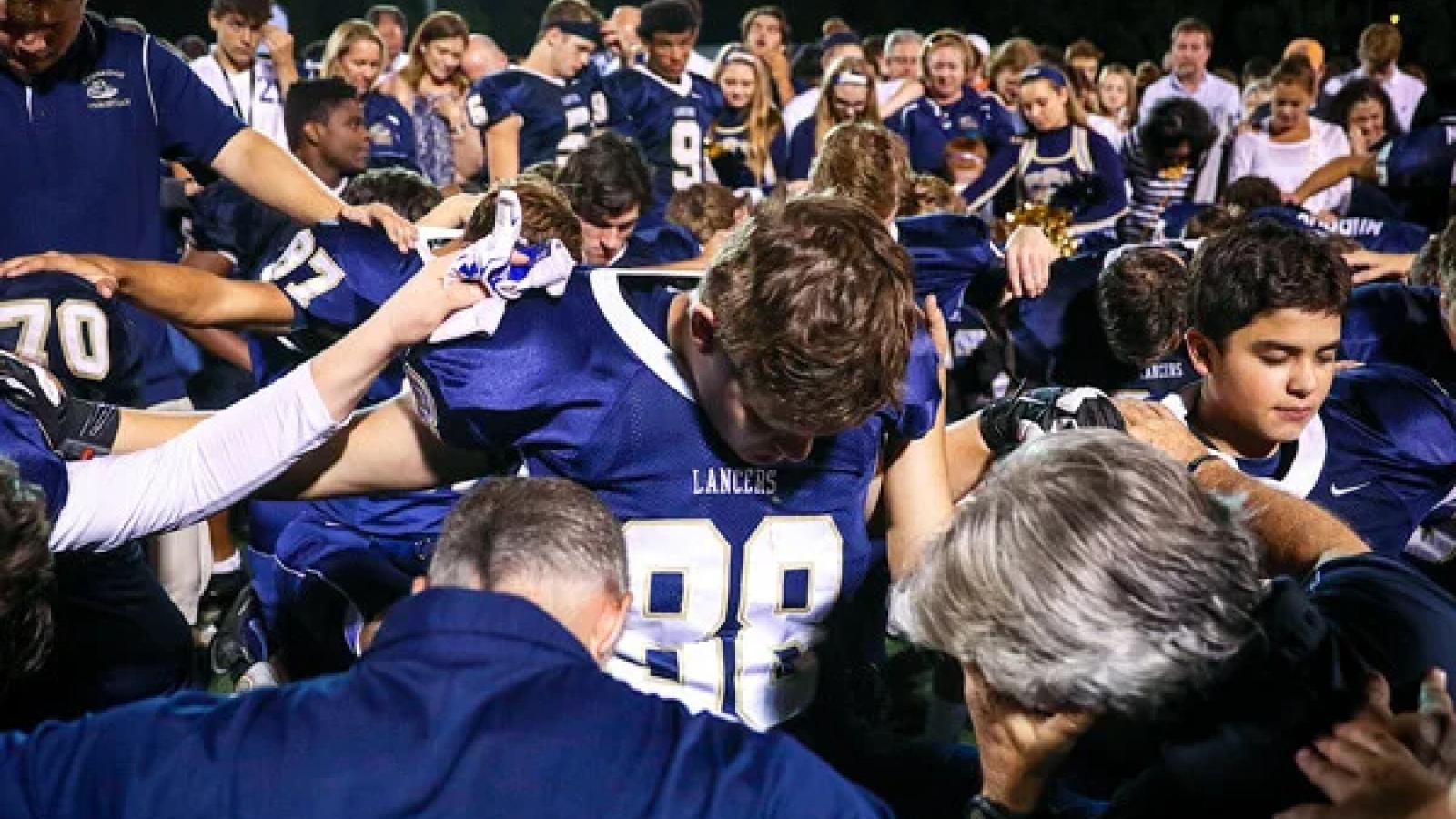
The football team at Florida's Cambridge Christian School prays at a game.
Beth Dare Photography/First Liberty Institute
FHSAA invoked taxpayer funding of the stadium and FHSAA's status as a "state actor" to deny the loudspeaker prayer, citing the 2000 Supreme Court precedent known as Santa Fe, which banned a school district's policy that allowed "student-led, student-initiated" prayer at football games as an Establishment Clause violation.
Yet it approved loudspeaker prayer at the University Christian-Dade Christian 2012 championship game at the Citrus Bowl, and in his 2021 deposition, then-executive director George Tomyn said FHSAA "periodically often" allows schools to give welcome remarks and does not review them ahead of time, CCS's petition says.
The 11th U.S. Circuit Court of Appeals upheld the prayer ban last fall, finding that "pregame speech over the PA system at football finals has traditionally constituted government speech" and that the audience would reasonably believe a prayer was government-endorsed. The full appeals court declined to rehear the case in February.
Since a new Florida law requires athletic associations to let schools make opening remarks including prayers and not control or review what they can say, beyond enforcing time limits and prohibiting "derogatory, rude or threatening" remarks, a prayer ban "cannot reasonably be expected to recur," the three-judge panel said.
CCS asked SCOTUS to take the case to settle whether Santa Fe "compels a finding of government speech" in this situation and should hence be overruled in light of subsequent precedents, including 2022's Kennedy and 2017's Matal, which struck down a statutory ban on "disparag[ing]" trademarks including for the Asian-American rock band The Slants.
CCS also asked for review of whether "the endorsement factor of the government-speech doctrine" revives the "endorsement test offshoot" from the zombie precedent Lemon, "by providing a special veto for a private party’s religious speech on any government owned platform." In Kennedy, SCOTUS said it had "long ago abandoned" that offshoot.
The high court issued a variation of the Lemon test in 1984's Lynch, known casually as the "three plastic animal rule" or "reindeer rule," which says putting three or more secular figures in an otherwise religious display such as a Christian nativity scene is generally enough to defeat an Establishment Clause challenge.
'Private speech one day and government speech the next'
The Tebow and Hennings brief also includes former Clemson head coach Tommy Bowden, the son of Florida State legend Terry Bowden, and pioneering Vietnamese-American NFL player Dat Nguyen, former Cowboy and Miami Dolphin Cory Procter, and Alan Cox, son of "legendary" Florida high school coach Gene Cox.
Playing and coaching under his father, Alan Cox said "pre- and post-game prayer was integral to the Florida football programs" Gene Cox led and "this was historically a common practice" in games between FHSAA members.
The 11th Circuit botched the "one question" it had to resolve – whether using a loudspeaker transformed private into government speech – by neglecting "a holistic" review that considered "the tradition of public displays of faith in American football" and "FHSAA’s practice of sometimes allowing" prayer even at championship games.
Rather than give weight to "the most direct comparative history," that FHSAA allowed prayer at the 2012 championship, the 11th Circuit wrote it off as "one example" and ignored the fact it "allowed prayer at every playoff game leading up to the championship game" as well as "obvious private speech" over the loudspeaker at other games, the brief says.
The appeals court never explained the importance of the distinction between FHSAA hosting the championship but not playoff games – "Does the fan in the stand have any appreciation at all for this fact?" – and why not monitoring the content of playoff scripts should mean FHSAA has legitimate "total control" of the championship loudspeaker.
Letting the association arbitrarily choose the rules for each game "means that the government has unbridled discretion to decide that historically indistinguishable circumstances count as private speech one day and government speech the next –giving the government the ability to dispense or withhold First Amendment protections as it sees fit," the brief also says.
Threat to musicians with religious themes playing at public colleges
Country star Turner's brief says that because he "incorporates Christian themes into his music" and performs at public colleges, he has "an interest in ensuring private speech is not unlawfully censored at public venues simply because it contains religious elements."
He notes the history of religious expression by presidents, the frequency of songs "about God and faith" by secular musicians and especially chart-toppers by country stars including Randy Travis and Carrie Underwood, and the unavoidable praise for God among athletes from Tebow to WNBA draft first-pick Paige Bueckers and PGA champion Scottie Scheffler.
"Courts can over-complicate legal tests about religious speech by wringing their hands" over when words "could possibly be attributed to the government," but no court faulted President Eisenhower for reciting his own inauguration prayer over a PA system, and none should use reasoning that censors messages with religious content, Turner's brief says.
Clement's brief for the former AGs takes square aim at the Santa Fe precedent against student prayer, which "many thought … was wrong the day it was decided" and is "plainly out of step with virtually every decision interpreting the Religion Clauses in the decades since."
Lemon and its endorsement offshoot put the Establishment Clause "on a collision course" with practices "dating back to the founding, introducing doctrinal incoherence and inviting antireligious discrimination under the guise of avoiding establishment," which SCOTUS is now "simply ignoring" when they violate "longstanding practice and common sense."
The high court has "long since abandoned" the crux of Santa Fe – that "misperceptions of observers looking to take offense can trump the rights of religious people and schools to fully participate in public life" – but it's still in vogue with "state and local officials, some of whom may be hostile to religion, but most of whom are simply trying to avoid being sued," he said.
The Facts Inside Our Reporter's Notebook
Videos
Links
- "Tebowing," a term he trademarked
- Supreme Court blessed the practice
- football coach Joe Kennedy
- 18 state attorneys general
- 16 members of Congress
- friend-of-the-court briefs
- First Liberty Institute
- argued more than 60 times before SCOTUS
- Supreme Court precedent known as Santa Fe
- CCS's petition
- 11th U.S. Circuit Court of Appeals upheld
- statutory ban on "disparag[ing]" trademarks
- "endorsement test offshoot"
- zombie precedent
- 1984's Lynch
- "three plastic animal rule"
- reindeer rule
- Tebow and Hennings brief
- Country star Turner's brief
- Clement's brief for the former AGs
Other Media
Image

The football team at Florida's Cambridge Christian School prays at a game.
Beth Dare Photography/First Liberty Institute
